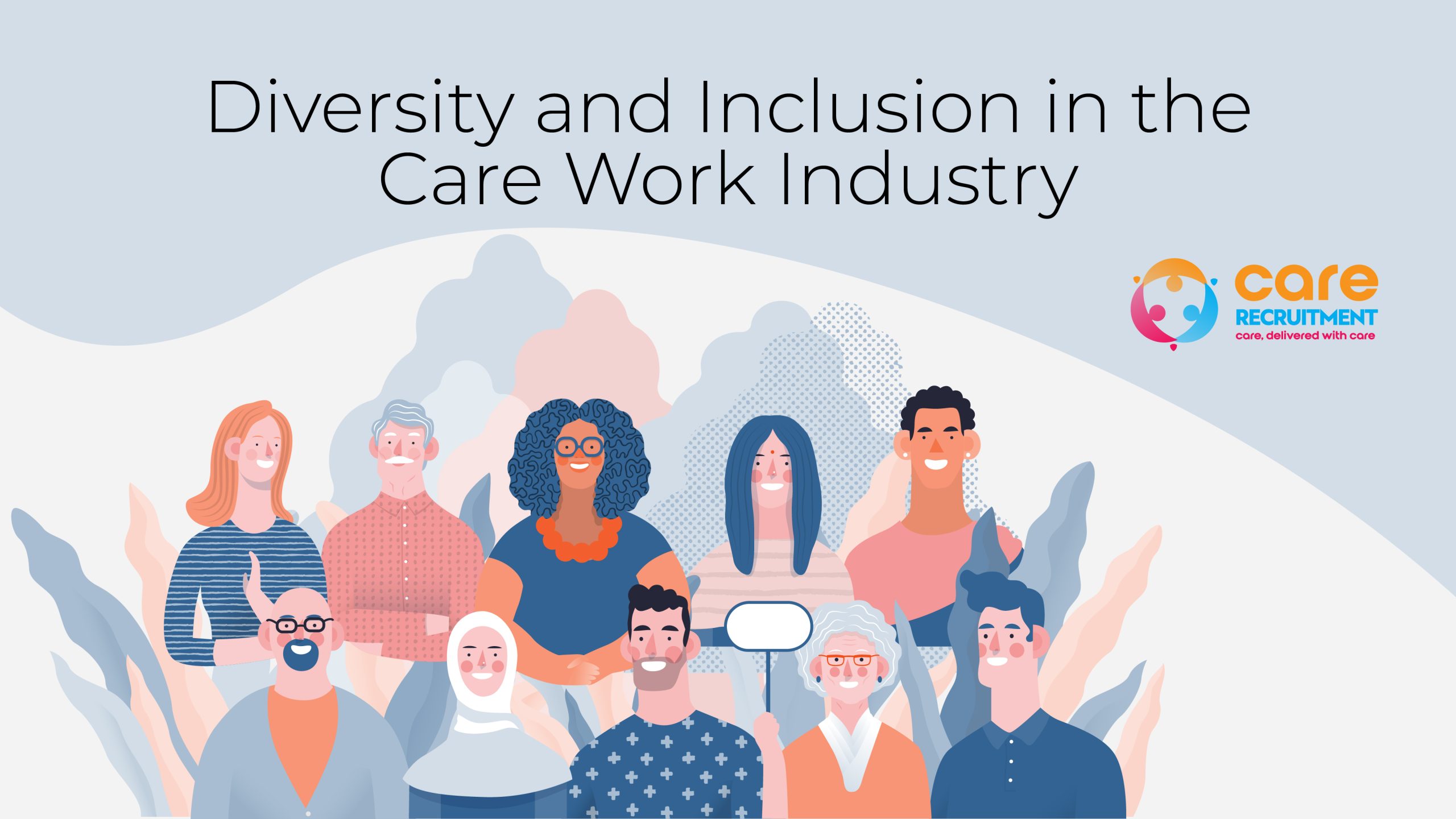
The care work industry in the UK is a crucial and rapidly growing sector, with over 1.6 million workers providing care to those in need, including the elderly, people with disabilities, and individuals with mental health issues. As this industry continues to expand, it is vital to recognize the importance of diversity and inclusion within the workforce. In this blog, we will explore the significance of diversity and inclusion in the care work industry and how it can benefit both workers and the people they care for.
It is essential to understand the difference between diversity and inclusion. Diversity refers to the presence of individuals from different backgrounds, cultures, and identities, while inclusion refers to creating an environment where everyone feels valued and respected, regardless of their differences. It is crucial to recognize that diversity alone is not enough; inclusion is equally important in creating a positive and supportive work environment.
The care work industry in the UK has historically been dominated by women, particularly white women. However, in recent years, there has been a push for more diversity within the workforce, including increased representation of people of color, LGBTQ+ individuals, and people with disabilities. This push for diversity and inclusion is essential for several reasons.
Firstly, a diverse workforce can bring a range of perspectives and experiences, which can help to improve the quality of care provided. For example, having care workers from different cultural backgrounds can help to ensure that care is culturally appropriate and sensitive to the needs of people from diverse communities.
Secondly, a more diverse and inclusive workforce can help to address some of the inequalities that exist within the care work industry. For example, women and people of colour are often paid less than their white male counterparts in care work. By promoting diversity and inclusion, we can work towards addressing these inequalities and creating a more equitable industry.
Thirdly, a diverse and inclusive workforce can help to improve job satisfaction and retention rates among care workers. When care workers feel valued and respected, they are more likely to stay in their jobs, which can help to address the high turnover rates that are often seen in the care work industry. This, in turn, can lead to better continuity of care for the people who rely on care services.
How to promote diversity and inclusion
So, what can be done to promote diversity and inclusion in the care work industry?
Firstly, it is essential to ensure that recruitment processes are inclusive and accessible to people from diverse backgrounds. This may involve reviewing job descriptions and requirements to ensure that they do not inadvertently exclude certain groups of people.
Secondly, training and development opportunities should be provided to all care workers, regardless of their background or identity. This can help to ensure that all care workers are equipped with the knowledge and skills necessary to provide high-quality care that is sensitive to the needs of people from diverse communities.
Thirdly, care providers should work to create an inclusive and supportive work environment. This may involve implementing policies and practices that promote diversity and inclusion, such as flexible working arrangements or cultural awareness training for all staff members.
In conclusion, promoting diversity and inclusion in the care work industry is essential for improving the quality of care provided, addressing inequalities within the industry, and improving job satisfaction and retention rates among care workers. By taking steps to create a more diverse and inclusive workforce, we can work towards creating a more equitable and effective care system that meets the needs of all those who rely on care services.